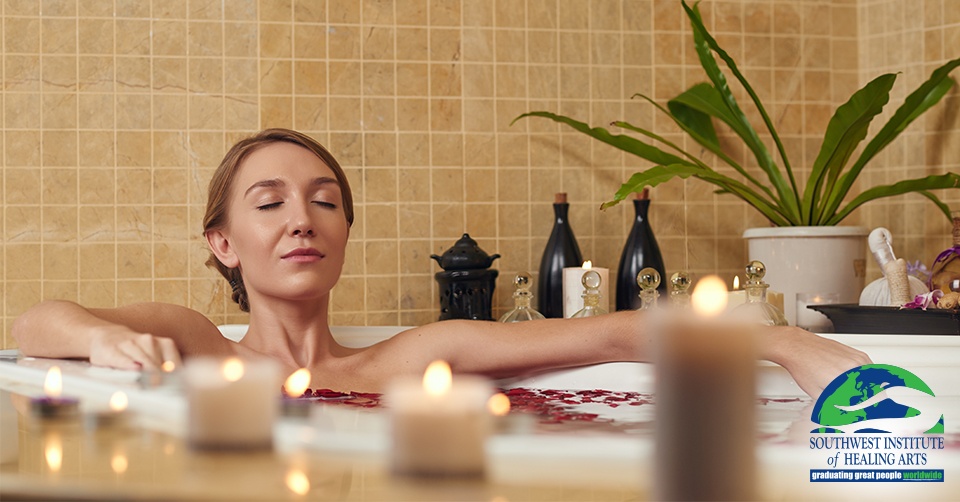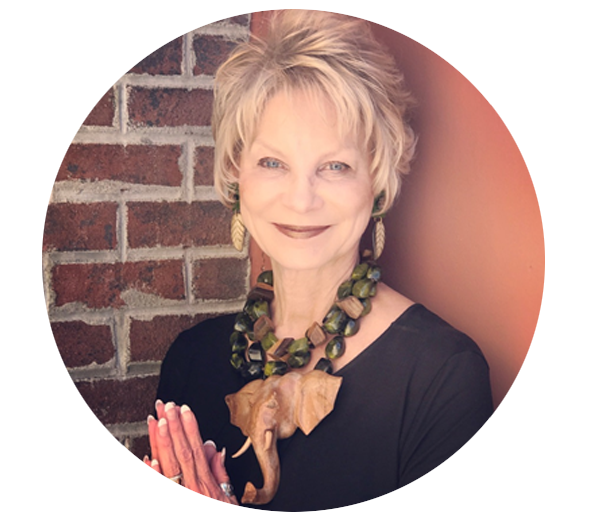If you’ve watched television in the last 30 years, you’ve likely seen a popular commercial for Calgon bath products in which a woman’s chaotic home life proves to be more than she can handle. In the ad, the woman lunges to answer her ringing phone; meanwhile, her young daughter screams her lungs out as she cuts a frenzied path through the kitchen, the pet dog barks relentlessly, a tipped over houseplant sends soil scattering across the counter, and dinner starts to boil over on the stove.
Exhausted, the woman covers her ears, looks up to the heavens, and pleads, “Calgon, take me away!” The next scene reveals her relaxing in a hot bath, where she melts into a state of deep meditative bliss and leaves behind the domestic woes which had afflicted her mere seconds before. Brilliant marketing aside, the question remains: can a hot bath really soak away your stress and take you to an almost fantasy-like state of being?
Actually, YES! Bathing has a long and detailed history, with its objectives shifting over the centuries from personal hygiene to therapeutic healing, from religious ritual to simple relaxation. In fact, hot mineral baths have long been a big part of holistic medicine, with some of the earliest literature on this process referring to bathing as the “water cure.” More recently, the science of hydrotherapy—the use of water to treat dis-ease and maintain health—is helping us to understand how passive heating (as opposed to getting hot and sweaty from exercise) improves health. Submergence in water can reduce pain and inflammation, calm the nervous system, reduce the level of anxiety in the body, and improve our overall mood. The University of Oregon published a study documenting how regular hot baths can lower blood pressure; the warmth of baths improves various internal organ tissue and arterial stiffness in the blood vessels.
The bottom line? Dipping the body in hot water up to the neck is a kind of exercise for your blood vessels; it relaxes and increases circulation.
Take a Bath!
We recently polled a group of SWIHA’s holistic healers to ask what they personally did for self-care, and the vast majority cited “taking a bath” as their go-to cure!
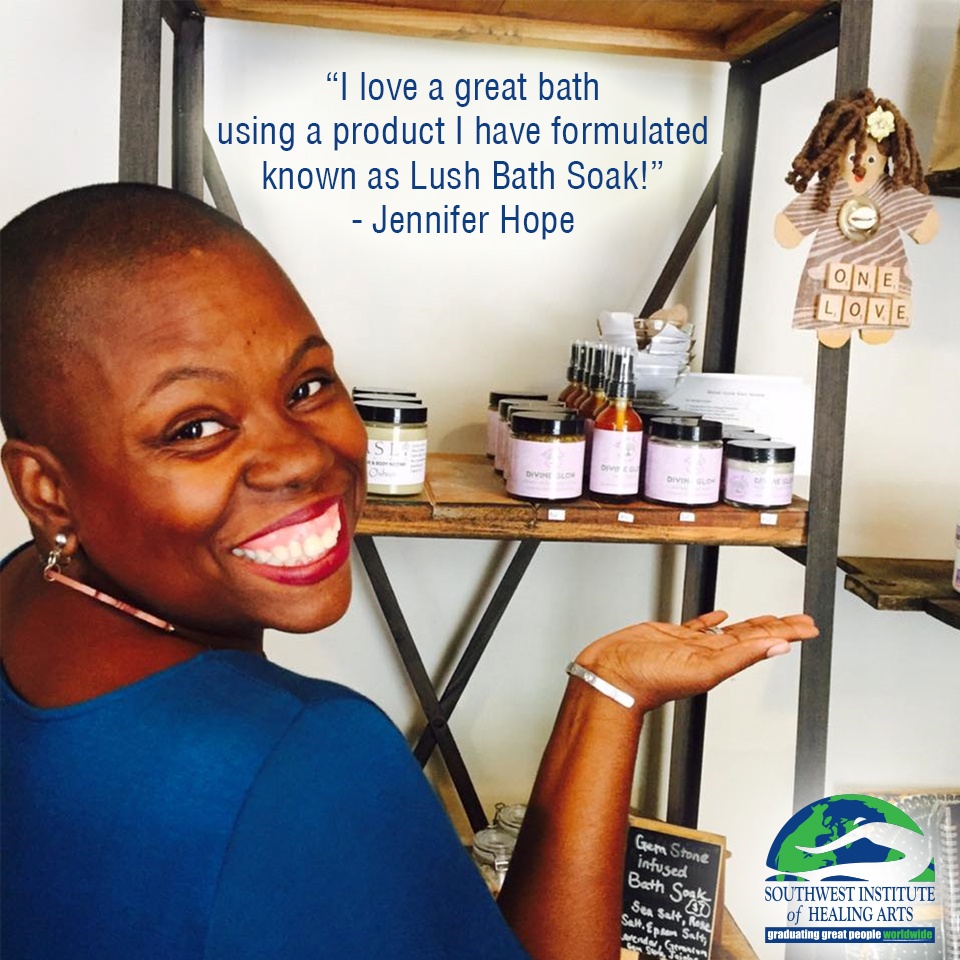
SWIHA great graduate Jennifer Hope explained her recipe for relaxation using the acronym S.O.A.K.: “After a long, exhausting day, there is nothing more relaxing than a warm bath filled with muscle relaxing Salts, essential Oils, and herbaceous Aromas as a way of being Kind to yourself.”
As the creator of Divine Love Holistic Wellness—a holistic body care line formulated and crafted with the intent to provide high quality and affordable products that are safe for daily use for the entire family—Jennifer believes that “using salts in self-care melts stress away in as little as 20 minutes” and that “soaking relieves all of those stiff muscles, the aromas bring a sense of calm to your mind, and your spirit eases with each passing second.” Jennifer recommends soaking in a bath two or three times a week to create a ritual of self-care that can stand up against any form of stress.
Jennifer elaborates on one of her favorite products of her own making: “I love a great bath using a product I have formulated known as Lush Bath Soak! It’s made with magnesium sulfate, Himalayan Pink Salt, Mediterranean Sea Salt, lavender, hibiscus, sweet orange, calendula, and a few drops of lavender essential oil. I promise it will take you away!” As a Life Coach and Hypnotherapist, this ambitious entrepreneur invites those she works with to listen to guided meditations while soaking in a bath, or as the very least, closing their eyes and repeating the powerful affirmation: “Self-care is self-love! I am willing to show myself a little love!”
Oils are Essential!
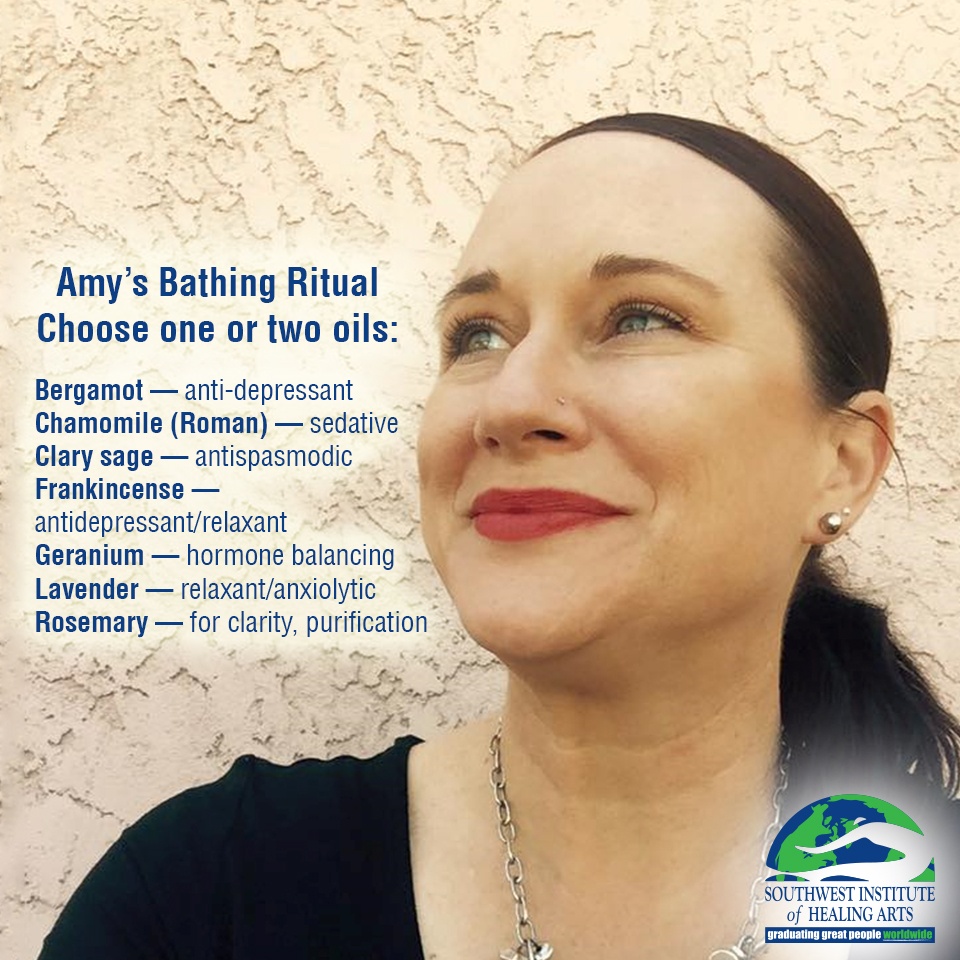
Amy Higgins is another one of SWIHA’s Great Graduates who believes in the healing applications of essential oils through bath salts. As the co-owner of Superstition Alchemy—an ecologically conscious supplier of products with ingredients wild-harvested in Arizona—Amy sees the power of this bath time combo to accelerate pain relief and provide emotional modulation. From a scientific perspective, essential oils are effective because up to fifty million smell receptors inside the nasal cavity connect to the brain's limbic system— an area responsible for emotions, memory, and sensual arousal. When asked about her bathing ritual, Amy suggested choosing one or two oils from the following list:
Bergamot — anti-depressant
Chamomile (Roman) — sedative
Clary sage — antispasmodic
Frankincense — antidepressant/relaxant
Geranium — hormone balancing
Lavender — relaxant/anxiolytic
Rosemary — for clarity, purification
Add the oils to:
1 ½ cups Epsom salts
½ cup Himalayan pink salt or other favorite natural/sea salt
Add 10-15 drops of any combo essential oils
Draw a bath with the water as hot as you are able to enjoy; add half of the salts with the oils you have selected. Halfway through the bath, add the second half of the salts. Breathe deeply. Follow with a full body rinse of cooled water. Follow the bath with essential oil infused oils, body butter, or lotion. When possible, plan to take a light nap or retire for the night.
Other suggestions from Amy include:
- Adding ½ cup of favorite milk of nut-milk
- Offering a prayer or doing a little meditation
- Setting a specific intention and submerging oneself
Aromatherapy: Stress Reducer!
Aromatherapy is a holistic practice that taps into the healing power of the scents of essential oils extracted from plants. These oils provide much-needed balance to the mind, body, and spirit. Essential oils can be diluted with bath water or by using a diffuser near your tub. Studies have shown that specific essential oils used in aromatherapy can help relieve stress, relax the body, and promote better sleep.
Marlynn Wei, MD, JD, a board-certified Harvard trained psychiatrist, certified yoga teacher, and author who regularly writes for Psychology Today and the Huffington Post, recently wrote of aromatherapy: “Our sense of smell starts from our nose and enters the skull through tiny holes to connect directly to the brain. This nerve rapidly sends signals to many different parts of the brain, including the limbic system and amygdala, in charge of regulating our autonomic nervous system, which can either trigger a fight-or-flight response, quickening our breath, heart rate and raising our blood pressure, or can soothe us through turning on the parasympathetic nervous system, which relaxing our bodies.”
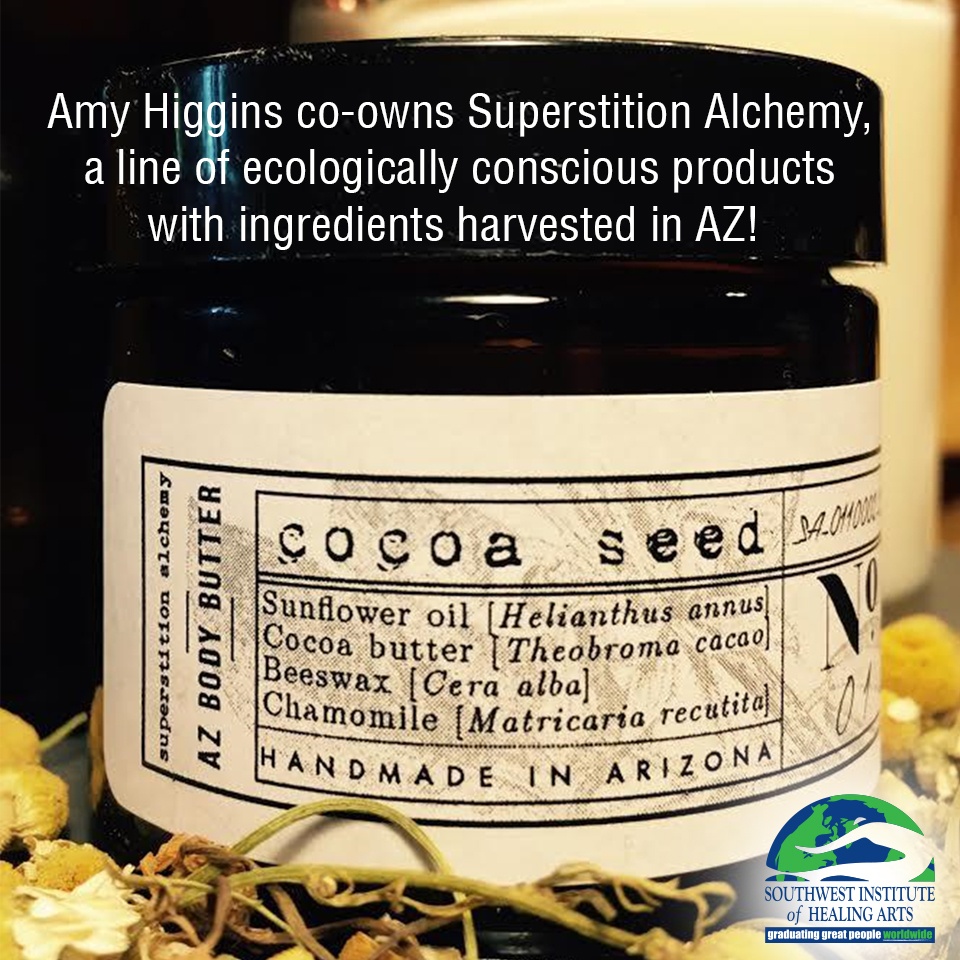
The theory Dr. Wei espouses helps to explain why using aromatherapy oils and salts in a bath quickly trigger physical reactions in our bodies and have lasting effects after the scent is gone. “Essential oils like lavender have even been shown to react the same way biochemically that anti-anxiety medications do with certain neuro-receptors.” She goes on to report, “Lavender essential oil is one of the most well-studied essential oils in terms of its relaxing effects. It can help with mild insomnia and provide better quality of sleep. Lavender aromatherapy has also been found to help reduce anxiety and depression in women with postpartum depression.”
Dr. Wei specializes in treating stress, anxiety, and depression and works with clients using a holistic approach that integrates mindfulness, nutrition, exercise, yoga, cognitive behavioral skill-building, and positive psychology similar to life coaching. In addition to using lavender, the holistic research-based physician recommends the following:
Bergamot — Five out of six clinical studies found that bergamot essential oil aromatherapy reduces heart rate, blood pressure, and stress.
Clary Sage — Has been shown to have antidepressant-like effects
Jasmine — A relaxing fragrance, with one study that suggests the aroma can be calming
Ylang Ylang — A study found the Ylang Ylang aroma calmed the nervous system, leading to lower heart rate and blood pressure.
Yuzu — A new type of yellow citrus fruit from Asian; a new study found yuzu citrus scent can soothe stress and anxiety and lower your heart rate in just 10 minutes, with effects lasting for almost half an hour. Interesting note: the Japanese custom of yuzu baths, in which whole yuzus float in hot baths to relieve stress, dates as far back as the 18th century.
Kindness is self-compassionate self-care!
The opposite of self-care is self-criticism and negative thinking, both which cause downward spirals. This exhaustion of the soul is the extreme result of self-induced stress. Self-compassion, on the other hand, has enormous healing power, including a phenomenon scientists call “upward spirals” of thinking.
Self-empowerment is key. Every person is unique, so there is no such thing as a one-size-fits-all approach. Rather, seeking to figure out a path that is right for your schedule and your preferences is the way to go. Being kind and compassionate to your body and mind begins with a decision to let go of the idea of perfection. One of the best ways to do this is to employ “Kindness Breath”:
- Find a comfortable seat or lie down on your back.
- Close your eyes.
- Place one hand on your abdomen and the other hand on your chest.
- Begin to take smooth, slow breaths as if you are sipping air through your nose.
Exhale through your nose slowly, keeping your mouth closed. - Pace your breath, continuing to sip air through your nose several times while
repeating these phrases in your mind:
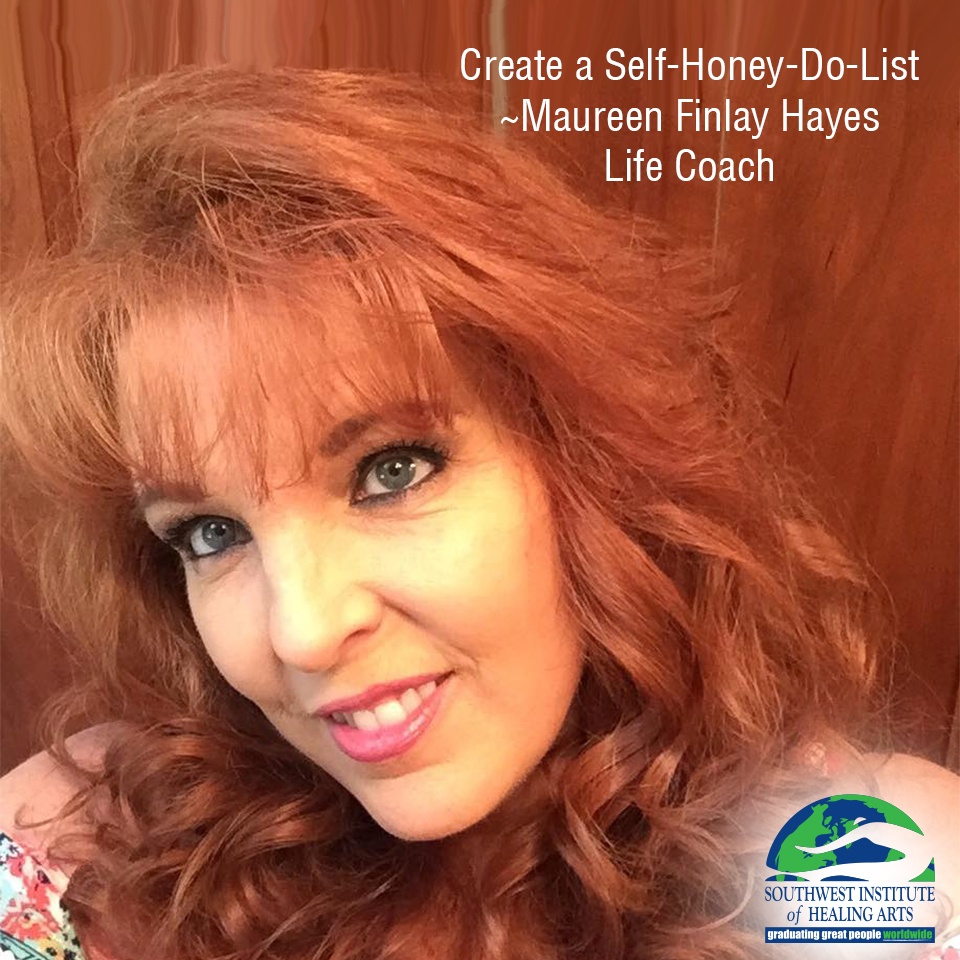 On the inhale, "I breathe in, and let go of the day."
On the inhale, "I breathe in, and let go of the day."
On the exhale, "I breathe out, and the thought that things are only one way!”
On the inhale, "I breathe in, and let go of the day."
On the exhale, "I breathe out, and sign knowing I have found a new way!”
Maureen Finlay Hayes is a life coach who graduated from SWIHA over ten years ago. She eagerly shared, "In working with a client on Self-love, we decided to create a Self-Love checklist! After some deep soul-searching, my client agreed to create a list of all the things she would love to do for herself each and every day.”
From this invitation came a Self-Honey-Do-List:
- Do Soak in Himalayan Pink Salt
- Do include essential Oils to your bath
- Do add a therapeutic healing Aromas when compatible with the salt baths
- Do be Kind to yourself.
We hope that you’ll give the S.O.A.K. approach a try, and we welcome you to let us know in the comments what your favorite bath time ritual is!

